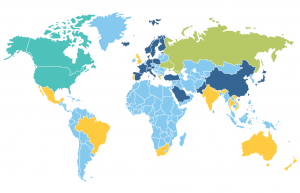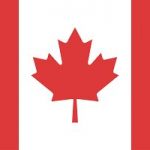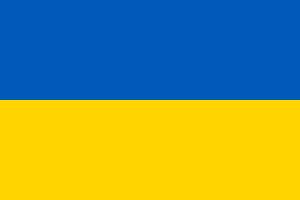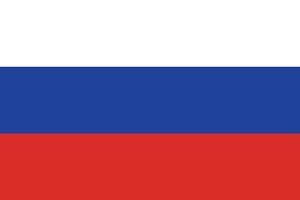How to Evaluate Possible Surrogacy Jurisdictions?
There can be important differences between countries in how surrogacy operates. There can also be significant variation in the degree of experience and expertise with surrogacy among the IVF clinics, surrogacy agencies or intermediaries, lawyers and other service providers that market to international intended parents. In some jurisdictions, there is only a small number of providers, whereas in others there are many possible choices.
Intended parents should carefully evaluate their options and the promises of surrogacy service providers to give themselves the best chance for a safe and successful journey, because once started there is no undo in international surrogacy. Four key factors can provide a starting foundation, to which intended parents will add additional considerations important to them.
Track Record: Intended parents will want to consider: how long surrogacy, specifically for international intended parents, has been legal; how common surrogacy for international intended parents is in a country; whether surrogacy is socially and politically accepted and whether there is a risk of an abrupt “closure”; and how long the surrogacy service providers they are considering have operated, how many surrogacy cases they undertake each year, and whether they are the established and recognized surrogacy “market leaders” or experts in a country.
Legal Framework: Some topics intended parents will want to understand include: whether they can clearly legally pursue surrogacy in a country, including if their journey has additional aspects like egg and/or sperm donation; how the law protects the parental rights of the intended parents; whether and what terms in a surrogacy contract are enforceable; and whether the baby receives nationality of the country where it is born and the impact this can have on immigration and obtaining the intended parents’ nationality for their child.
Surrogate Recruitment and Screening: Given the essential role of the surrogate, intended parents will want to consider: how surrogates are recruited by their IVF clinic, agency or intermediary; what medical approval criteria are applied for a surrogate in terms of overall health, number and history of prior pregnancies and caesarean deliveries, if any; and what additional surrogate approval criteria is applied including, psychological, financial stability, social and family environment, support network, and motivational assessments.
Quality of IVF Treatments and Medical Care: As the IVF and medical care is central to a successful outcome, intended parents will want to investigate: what are the success rates and frequency of performing the relevant procedures (e.g. surrogacy itself, egg and/or sperm donation, embryo vitrification and thawing, PGS and/or PGD) of the IVF clinics they are considering, and whether there is public reporting of this data; what is the quality of the medical care that the surrogate will receive before, during and after the pregnancy; and what is the quality of the medical care, including neonatal intensive care in case it is required, available for their baby.
Where is Surrogacy Allowed?
Looking at a map of the world, one can colour-code the countries into one of five categories based on their: suitability for international intended parents pursuing surrogacy; openness to heterosexual and same-sex couples, regardless of whether they are married or in a legally recognised relationship, as well as to single women and men; and whether they require a medical need for surrogacy.
Teal: surrogacy is legally permitted and available to all types of international intended parents.
Green: surrogacy is legally permitted but only available to certain international intended parents.
Yellow: surrogacy is legally permitted in specific circumstances, typically altruistic cases and/or where there is a medical need, but is limited and generally not available to international intended parents.
Light Blue: the legal status of surrogacy is uncertain or unregulated, but some cases may nevertheless occur.
Dark Blue: all forms of surrogacy are prohibited, in the applicable regulation or by public policy.
Certainly, many intended parents complete their surrogacy journeys in their own countries if they happen to live in one of the permitted jurisdictions.
For those that need or choose to pursue international surrogacy, of 196 countries in the world only a handful currently fall into either the “Teal” or
“Green” category. Not surprisingly these are the most common “surrogacy destinations”.
Some agencies or intermediaries promote surrogacy journeys in countries where the legal status is uncertain or unregulated – the “Light Blue” countries. Lower cost is the principal driver behind this, but these surrogacy journeys may lack the legal and other protections for intended parents and the surrogate as well as a track record which can contribute to a safe journey.
Previously other countries were “open”, either with or without clear legal status, to international intended parents. Many of these have “closed” the door. Notable examples include India, Nepal, Thailand, Mexico and Cambodia. In some cases, the “closure” has come abruptly and caused real hardship for intended parents when they were seeking to return home with their baby(ies).
The USA and Canada are currently the only jurisdictions fully open to all international intended parents regardless of relationship status, sex or medical need, making them the only
“Teal” countries. Ukraine, Russia, Georgia, and Greece are all “Green” countries. Surrogacy in these four countries is only available to certain intended parents, specifically heterosexual couples where there is a medical need except in Russia and Greece where single women may also undertake surrogacy.
 The USA is the world leader in terms of surrogacy procedures performed annually. Based on public data it’s estimated that there are around 4,000 surrogacy cases each year. This is split roughly equally between surrogacy using an intended mother’s own egg and surrogacy that uses a donor egg. This is many multiples times more cases per year than any other country where surrogacy is currently possible.
The USA is the world leader in terms of surrogacy procedures performed annually. Based on public data it’s estimated that there are around 4,000 surrogacy cases each year. This is split roughly equally between surrogacy using an intended mother’s own egg and surrogacy that uses a donor egg. This is many multiples times more cases per year than any other country where surrogacy is currently possible.
Surrogacy has been practiced in the US for more than 30 years and it has the highest number of agencies and IVF clinics, around 140 and 470 respectively. However, among these agencies and clinics, the largest 10 of each (or around 7% and 2% of the total number respectively) are estimated to represent some one-third or more of all surrogacy cases each year.
In the USA surrogacy operates under a compensated model. There is no national legislation governing the relevant legal matters relevant to surrogacy. These are dealt with on a state-law basis. Compensated surrogacy is allowable in all but five states in the USA, and different states allow different groups of intended parents to be recognized as the legal parents either pre-or-post birth of their baby.
 There are no publicly reported statistics on the number of surrogacies every year in Canada, but it is likely to be the low hundreds. Compared
There are no publicly reported statistics on the number of surrogacies every year in Canada, but it is likely to be the low hundreds. Compared
to the USA, there are five surrogacy agency-equivalent organizations and only a few IVF clinics with a strong focus on surrogacy.
Surrogacy in Canada operates under an altruistic model meaning that only justifiable expenses related to the pregnancy are reimbursable to a surrogate. There is national legislation in the form of the Assisted Human Reproduction Act 2004 that provides for the legality of altruistic surrogacy. Other matters relevant for surrogacy are defined at a provincial and territorial law level. Surrogacy contracts are not legal in Quebec.
 Ukraine, owing to its generally favorable and clear legal framework for surrogacy, is likely the second or third most common country for international intended parents to undertake surrogacy. The first reported surrogacy case in Ukraine was in 1993. According to official statistics, there were just under 400 surrogacy-related IVF cycles in the 2013-14 period and close 40 IVF clinics in Ukraine. There are some 15 or more “agencies” facilitating surrogacy in Ukraine as well as specialist legal and other support services. Surrogacy operates under a compensated model in Ukraine.
Ukraine, owing to its generally favorable and clear legal framework for surrogacy, is likely the second or third most common country for international intended parents to undertake surrogacy. The first reported surrogacy case in Ukraine was in 1993. According to official statistics, there were just under 400 surrogacy-related IVF cycles in the 2013-14 period and close 40 IVF clinics in Ukraine. There are some 15 or more “agencies” facilitating surrogacy in Ukraine as well as specialist legal and other support services. Surrogacy operates under a compensated model in Ukraine.
Ukrainian law defines important aspects of surrogacy. It is only available to married heterosexual couples with a medical need and at least one of the intended parents must have a genetic link to the baby. The intended parents are the legal parents from the outset and the surrogate at no point has parental rights with regards to the child. Ukrainian law also defines the medical need conditions for surrogacy as well as who can qualify to act as a surrogate.
 Surrogacy has a history in Russia since 1995 when the first Russian case was reported. Based on public statistics there were nearly 140 IVF clinics in Russian and close to 950 surrogacy-related IVF cycles in 2012 which resulted in about 270 live births. Many clinics in Russia organize matches of surrogates with intended parents without an agency or intermediary, although independent surrogacy agencies and lawyers are also available. Surrogacy operates under a compensated model in Russia.
Surrogacy has a history in Russia since 1995 when the first Russian case was reported. Based on public statistics there were nearly 140 IVF clinics in Russian and close to 950 surrogacy-related IVF cycles in 2012 which resulted in about 270 live births. Many clinics in Russia organize matches of surrogates with intended parents without an agency or intermediary, although independent surrogacy agencies and lawyers are also available. Surrogacy operates under a compensated model in Russia.
Russian law requires the surrogate to consent to the termination of her parental rights after the birth. Pre-birth consent is not enforceable. Russian law also requires there to be a medical need. Russian law permits surrogacy for married heterosexual couples. Many single women with a medical need also use surrogacy in Russia, although the law is less clear in this case.
 Surrogacy in Georgia has been legal since 1997. The number of clinics and agencies, as well as the number of surrogacy-related cases annually, is small by comparison to other larger jurisdictions. Surrogacy operates under a compensated model in Georgia.
Surrogacy in Georgia has been legal since 1997. The number of clinics and agencies, as well as the number of surrogacy-related cases annually, is small by comparison to other larger jurisdictions. Surrogacy operates under a compensated model in Georgia.
Georgian law provides that the surrogate has no parental rights when there is a properly executed surrogacy agreement in place. Surrogacy in Georgia is open to married heterosexual couples with a medical need.
 Surrogacy in Greece, available there for more than a decade, has been open to international intended parents since 2014. Surrogacy in Greece is typically organized by IVF clinics. The number of cases annually is small by comparison to other larger jurisdictions. Surrogacy in Greece operates under an altruistic model, but the law does make provisions for some compensation in defined circumstances.
Surrogacy in Greece, available there for more than a decade, has been open to international intended parents since 2014. Surrogacy in Greece is typically organized by IVF clinics. The number of cases annually is small by comparison to other larger jurisdictions. Surrogacy in Greece operates under an altruistic model, but the law does make provisions for some compensation in defined circumstances.
Under Greek law, the court sanctions the surrogacy agreement beforehand and the intended parents have parental rights from
the outset. It is only available to married heterosexual couples or single women with a medical need.
Organizing their surrogacy journey is one of the most significant life events that intended parents will undertake. Careful consideration and research of their options can help them choose wisely and give them the best chance for a safe and successful journey.





 The USA is the world leader in terms of surrogacy procedures performed annually. Based on public data it’s estimated that there are around 4,000 surrogacy cases each year. This is split roughly equally between surrogacy using an intended mother’s own egg and surrogacy that uses a donor egg. This is many multiples times more cases per year than any other country where surrogacy is currently possible.
The USA is the world leader in terms of surrogacy procedures performed annually. Based on public data it’s estimated that there are around 4,000 surrogacy cases each year. This is split roughly equally between surrogacy using an intended mother’s own egg and surrogacy that uses a donor egg. This is many multiples times more cases per year than any other country where surrogacy is currently possible. There are no publicly reported statistics on the number of surrogacies every year in Canada, but it is likely to be the low hundreds. Compared
There are no publicly reported statistics on the number of surrogacies every year in Canada, but it is likely to be the low hundreds. Compared Ukraine, owing to its generally favorable and clear legal framework for surrogacy, is likely the second or third most common country for international intended parents to undertake surrogacy. The first reported surrogacy case in Ukraine was in 1993. According to official statistics, there were just under 400 surrogacy-related IVF cycles in the 2013-14 period and close 40 IVF clinics in Ukraine. There are some 15 or more “agencies” facilitating surrogacy in Ukraine as well as specialist legal and other support services. Surrogacy operates under a compensated model in Ukraine.
Ukraine, owing to its generally favorable and clear legal framework for surrogacy, is likely the second or third most common country for international intended parents to undertake surrogacy. The first reported surrogacy case in Ukraine was in 1993. According to official statistics, there were just under 400 surrogacy-related IVF cycles in the 2013-14 period and close 40 IVF clinics in Ukraine. There are some 15 or more “agencies” facilitating surrogacy in Ukraine as well as specialist legal and other support services. Surrogacy operates under a compensated model in Ukraine. Surrogacy has a history in Russia since 1995 when the first Russian case was reported. Based on public statistics there were nearly 140 IVF clinics in Russian and close to 950 surrogacy-related IVF cycles in 2012 which resulted in about 270 live births. Many clinics in Russia organize matches of surrogates with intended parents without an agency or intermediary, although independent surrogacy agencies and lawyers are also available. Surrogacy operates under a compensated model in Russia.
Surrogacy has a history in Russia since 1995 when the first Russian case was reported. Based on public statistics there were nearly 140 IVF clinics in Russian and close to 950 surrogacy-related IVF cycles in 2012 which resulted in about 270 live births. Many clinics in Russia organize matches of surrogates with intended parents without an agency or intermediary, although independent surrogacy agencies and lawyers are also available. Surrogacy operates under a compensated model in Russia. Surrogacy in Georgia has been legal since 1997. The number of clinics and agencies, as well as the number of surrogacy-related cases annually, is small by comparison to other larger jurisdictions. Surrogacy operates under a compensated model in Georgia.
Surrogacy in Georgia has been legal since 1997. The number of clinics and agencies, as well as the number of surrogacy-related cases annually, is small by comparison to other larger jurisdictions. Surrogacy operates under a compensated model in Georgia. Surrogacy in Greece, available there for more than a decade, has been open to international intended parents since 2014. Surrogacy in Greece is typically organized by IVF clinics. The number of cases annually is small by comparison to other larger jurisdictions. Surrogacy in Greece operates under an altruistic model, but the law does make provisions for some compensation in defined circumstances.
Surrogacy in Greece, available there for more than a decade, has been open to international intended parents since 2014. Surrogacy in Greece is typically organized by IVF clinics. The number of cases annually is small by comparison to other larger jurisdictions. Surrogacy in Greece operates under an altruistic model, but the law does make provisions for some compensation in defined circumstances.


